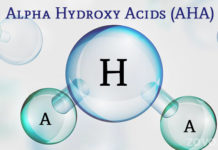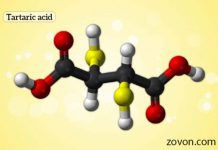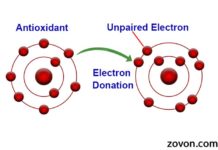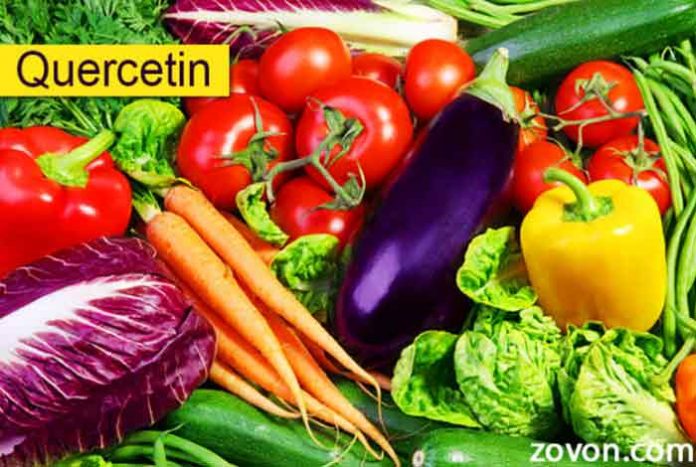
Quercetin is a type of flavonoid antioxidant that is responsible for providing color to different vegetables, fruits and flowers. Quercetin helps in the degradation of free radicals present within the body. It is used as an ingredient in different food supplements, beverages, etc.
The quercetin, an antioxidant is found to have a specific role in various medical treatments and they can be used in therapeutic treatments also.
Structure
Quercetin molecule contains five hydroxyl groups which are responsible for determining the biological activity of the compound. The main groups of quercetin derivatives include glycosides and ether. Sulfur and Prenyl groups are also found but not as frequently as glycosides and ether. It is lipophilic in nature due to the type of substituent. Hydrophobic nature of the quercetin is enhanced by the glycosylation of at least one of its hydroxyl groups.
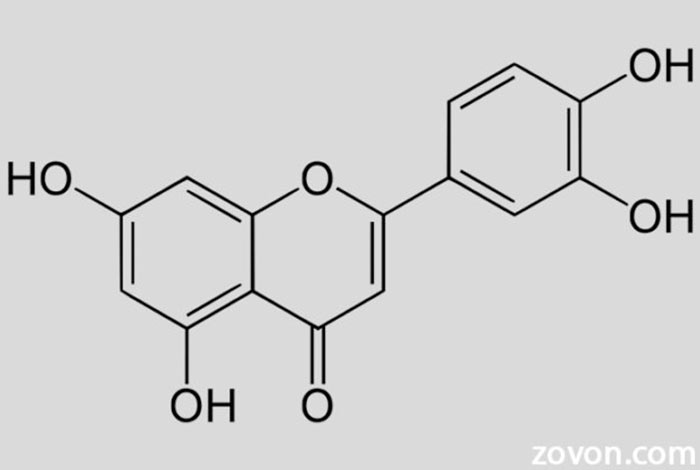
Sources of Quercetin
Quercetin is naturally available in various dietary products like fruits and vegetables. The quercetin is present in a variable amount in the following dietary sources:
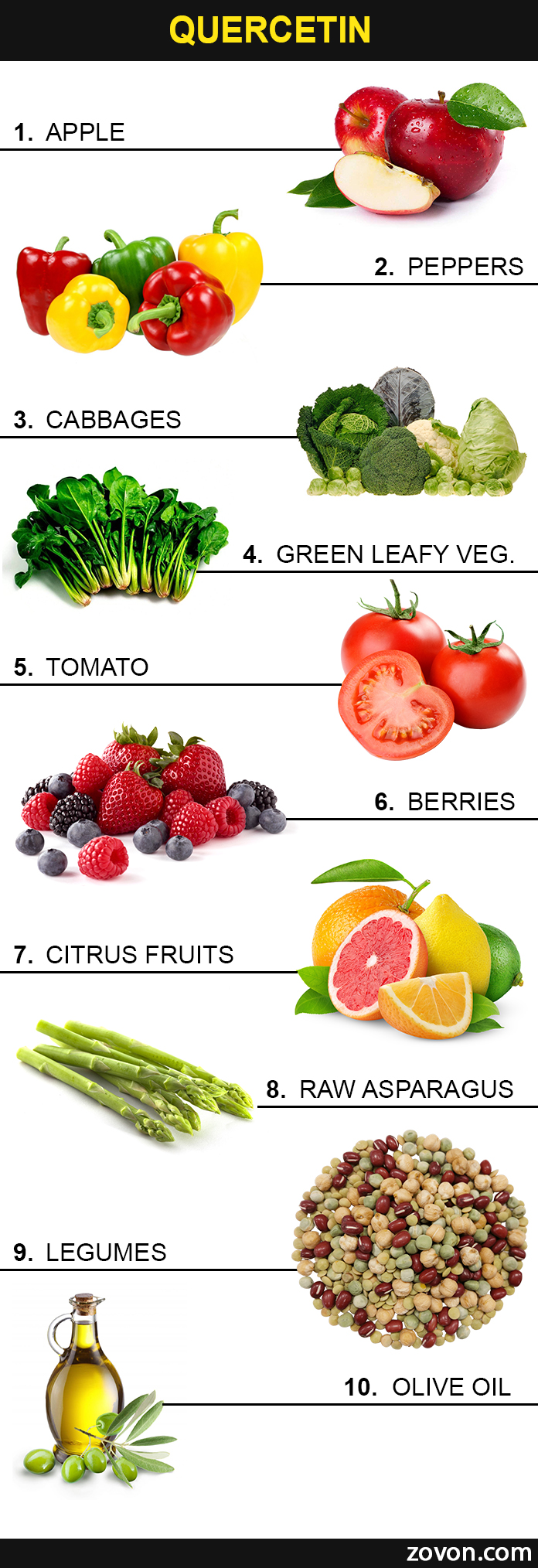
- Apple
- Peppers
- Broccoli, cabbages
- Green leafy vegetables
- Tomato
- Berries
- Citrus fruits
- Whole grains
- Raw asparagus
- Green tea/ black tea
- Legumes
- Olive oil
These are some natural sources of quercetin that can be included in the diet.
Benefits of Quercetin
The antioxidant property of the compound makes it beneficial for treating various health problems. Quercetin containing food elements help patients in reducing the number of free radicals present in the body that are damaging different cells and causing inflammation.
The diseases or health problems that can be cured with the supplementary diet of quercetin include:
-
Preventing the inflammation-
The quercetin possesses the property of anti-inflammatory compound because of the antioxidants present in it. These antioxidants fight with the oxidants present in the body which have a negative impact on the cells. Different kind of inflammation that can be cured with the consumption of quercetin are atherosclerosis, high cholesterol, ulcers, insulin resistance, eye-related disorders, viral infections, inflammation of prostate and ovaries, etc.
-
Restricts allergies-
Quercetin is considered as a natural antihistamine and regulate the production of histamine from certain immune cells which helps in the reduction of symptoms of the allergies like a cough, runny noses, hives, hay fever, swollen lips, etc. This is sometimes used against the allergies like that from peanuts.
-
Heart-related health problems-
Quercetin found to have a role in maintaining the heart health. Quercetin reduces the damage of LDL cholesterol in the human body which can be taken into the diet as alcohol-free red wine. It also minimizes the risk of atherosclerosis. Red wine is the best source for preventing the heart from various diseases like high cholesterol level, hypertension etc.
-
Reduces different body pains-
People consuming quercetin in any form have a tendency to resist pain at a higher level as it helps in reducing the pain especially the ones due to autoimmune conditions. People suffering from the pain of arthritis (specifically rheumatoid arthritis), pain because of infection like in bladder, prostate, respiratory tract, etc. The pain in case of arthritis patients can be reduced when the patient changes their diet and include high antioxidant-rich food. The bladder pain was also found to be reduced as quercetin reduces the inflammation and infections.
-
Enhances endurance-
Quercetin is present in few athletic supplements as it is believed to increase the performance level and endurance of the athletes. The quercetin impacts the blood flow and improves the health of the blood vessels which are responsible for transporting the oxygen to each part of the body including muscles and joint tissues. As it has anti-inflammatory property thus it protects the athletes from developing various infections especially the respiratory infections. Thus, they help in overall enhancement of endurance in the athletes.
-
Prevents cancer-
Cancer is a lethal disease but it can be prevented by taking some natural compounds like quercetin. The quercetin is a potent antioxidant that possesses chemo-preventive activity and shows anti-proliferative action against the cancer cells. It can be considered as the natural treatment process against cancer. This is a natural compound which is highly efficient for initial prevention of cancer. High doses of quercetin are recommended for the patient suffering from cancer.
-
Fights against skin diseases-
Antioxidants are considered as a good source that helps in the prevention of various skin issues. Quercetin is capable of restricting the inflammation and allergies generating as an autoimmune response on the skin like dermatitis and photosensitivity. The quercetin enhances the release of cytokines like IL-8 and TNF which minimize the development of inflammation on the skin.
Side effects of Quercetin:
- Since quercetin is derived from various natural sources thus it is considered to be safe for everyone.
- Researches proved that the consumption of quercetin-containing nutrient dense diet does not cause any kind of side effect. The safe amount in which the quercetin can be taken regularly is 500 milligrams twice a day for 12 weeks. Though, the higher doses of this can sometimes affect the health.
- However, the consumption of 1 g quercetin per day may affect the kidney and damage them. The higher concentration of quercetin consumption might cause a headache and upset stomach.
- There are certain precautions that must be taken before the consumption of quercetin. The pregnant and lactating mothers may not get any side effect from the consumption of quercetin but they must avoid taking this.
- Old age people must consult a doctor regarding the amount of dose for daily consumption.
*This dosage information may vary from person to person so we would suggest you to consult the health professional before taking it.
FAQs: What people normally want to know about Quercetin?
1. What is Quercetin?
Quercetin is a flavonoid that is extracted from various plant sources. They are a source of antioxidant derived from natural sources.
2. How is it beneficial to health?
Quercetin possesses a high amount of antioxidant property which is essential for the reduction of free radicals in the body and helps in the recovery of the cells damaged due to the oxidation process taking place within the cells.
3. Is it available as an edible source for consumption?
Yes, it is available as edible source as it is found in various food supplements, fruits and vegetables.
4. What are the sources of quercetin?
Quercetin is found in fruits like berries, citrus fruits, green leafy vegetables, whole grains, asparagus, red onion, green and black tea, beans and legumes, cocoa, apples, etc.
5. Can children take quercetin in their diet?
Yes, children can consume quercetin but their doses must be decided after consulting a health professional.
6. Are there any side effects of it?
Being a natural compound, it does not cause any side effect on the health of any human being, but taking high doses may cause some health issues like a headache, nausea, disturbed metabolism, etc.
7. Is it available as a supplement in the market?
Yes, it is available as a dietary supplement in the market but its consumption must be done after consulting with a doctor or health professional.

